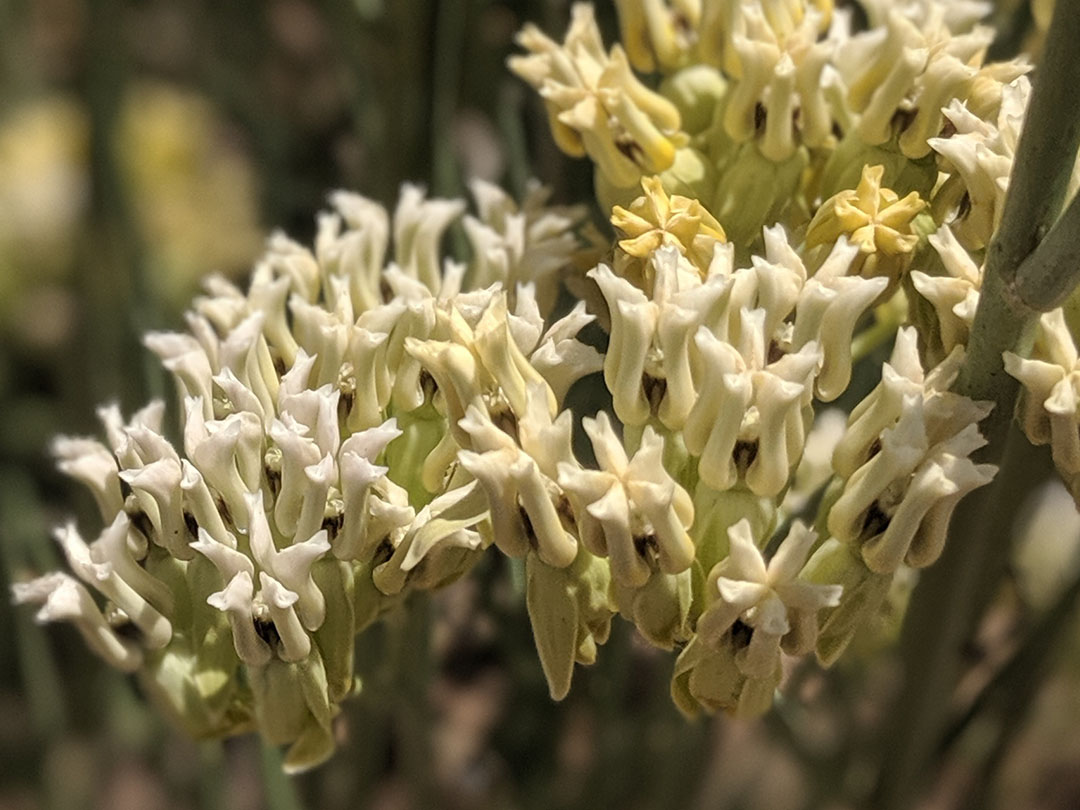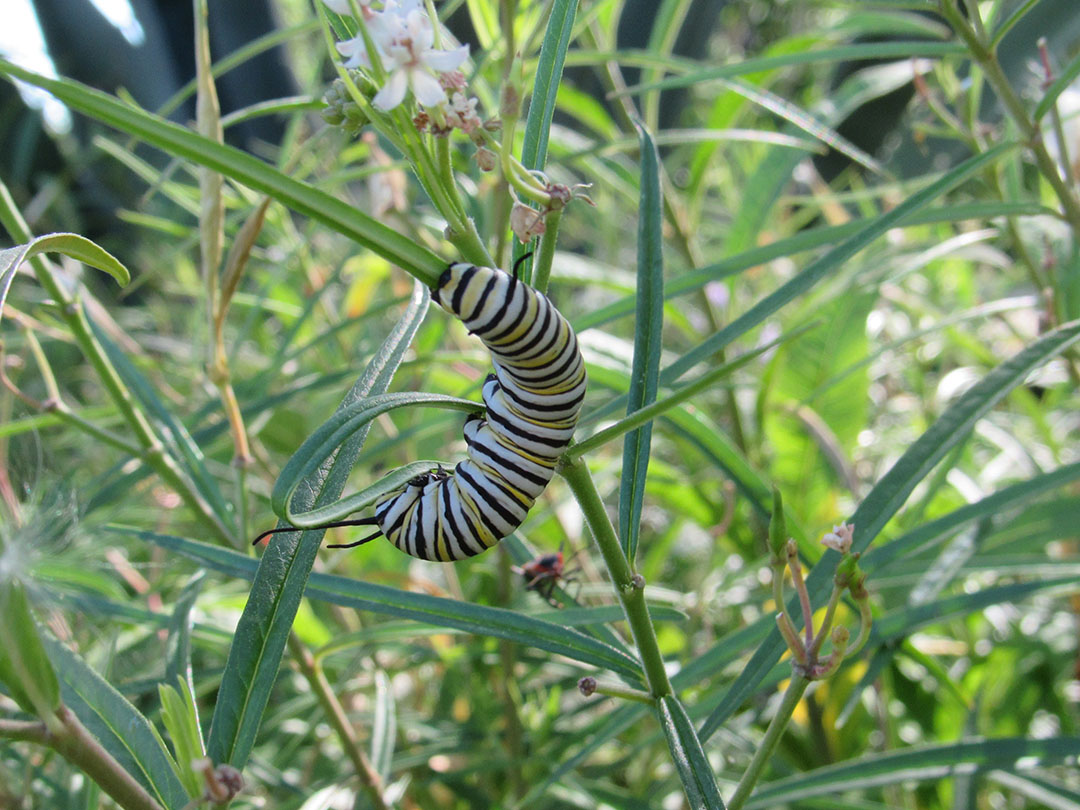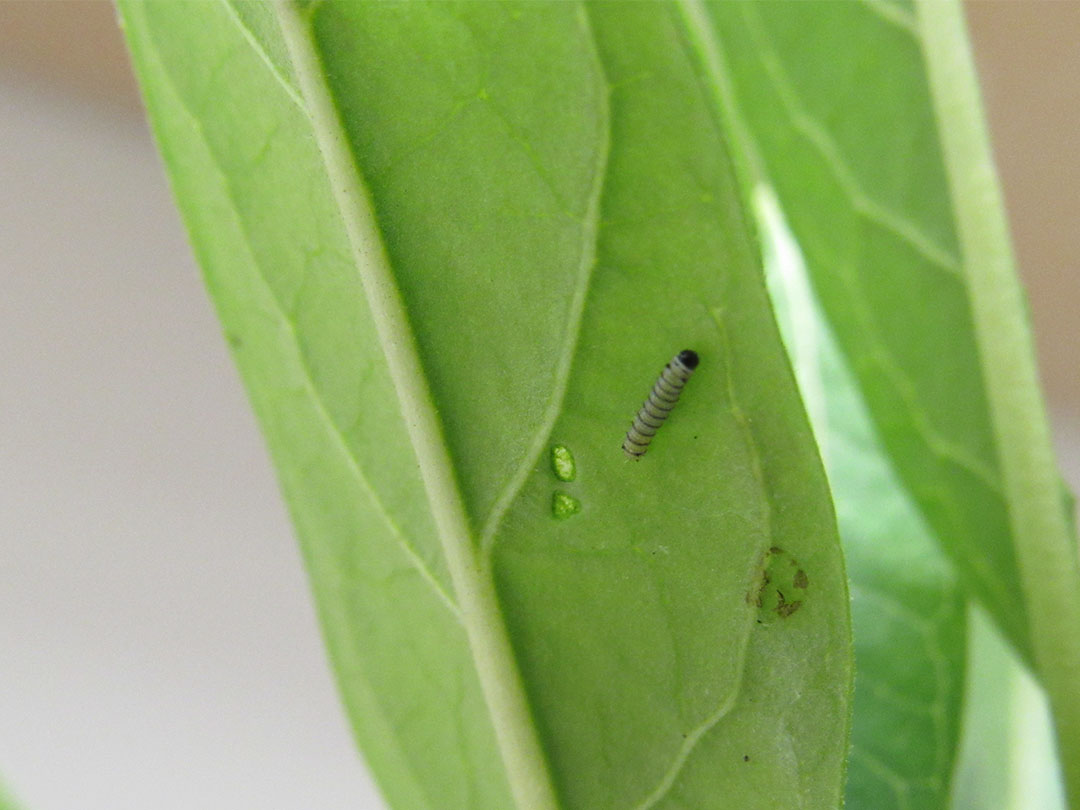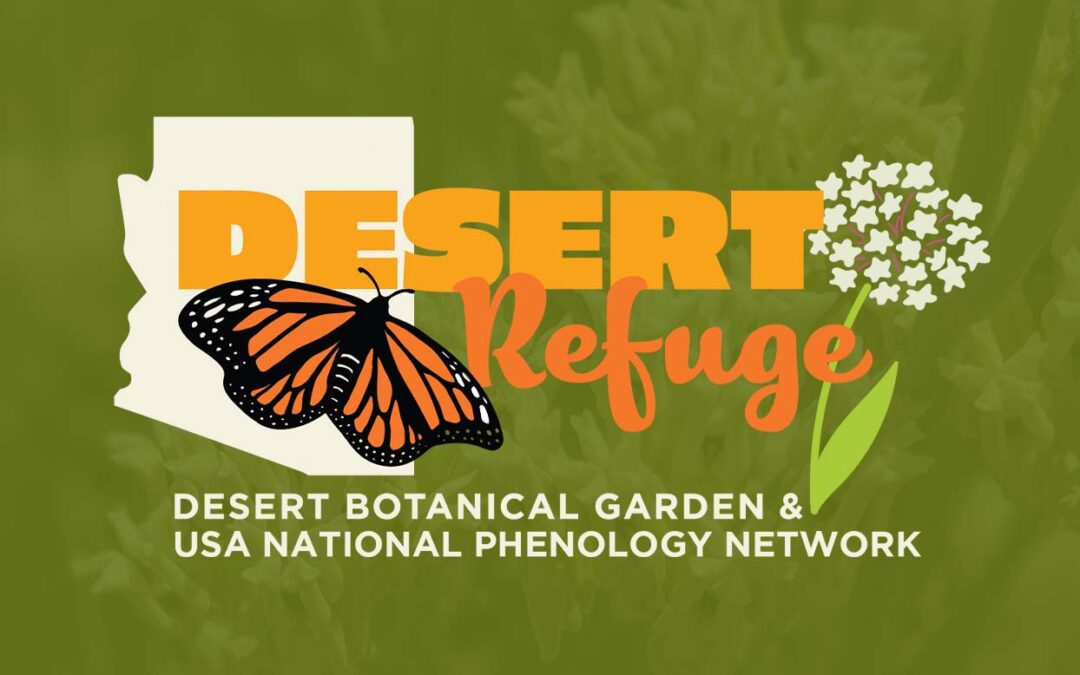In July, the decline of the migratory monarch butterfly was once again in the spotlight. The International Union for Conservation of Nature classified migratory monarchs as endangered, naming habitat loss and climate change as major factors for their decline.
In the fall, monarchs travel to both California with the western flyway and to Mexico with the eastern flyway. Thanks to tagging efforts by Southwest Monarch Study, we know a small number of monarchs spend the winter in the low desert, including the Phoenix and Tucson areas. Monarch populations are in trouble, especially the western flyway in the United States that migrates to California. The 2020 western monarch count found less than 2,000 butterflies, a devastating number from the millions seen there twenty years ago. But last year, monarch numbers in the California overwintering sites increased to around 250,000 butterflies.
The Valley does not generally observe clusters of monarchs here like in California or Mexico, but residents might see caterpillars on milkweeds in the winter, an indication that they have been breeding. Very little is known about this population in Arizona.
Desert Botanical Garden has teamed up with USA National Phenology Network to create a new community science project: Desert Refuge. The project will help both organizations track monarchs and answer some key questions.

Why are monarchs here in the winter? When during the fall and winter are they breeding, and what triggers this behavior? Does it have something to do with our milkweeds and the timing of their growth?
All of these are unanswered questions, and the Garden wants to give the community a chance to help us answer them!
If you have already taken the first step and planted milkweed (or delight in milkweeds planted near you), here is another way to get involved in monarch conservation.
Participants choose a milkweed that is convenient, like the one in your backyard or local park. At least once a week, check the milkweed to see what resources it has (like leaves or flower buds) and look for monarchs. Then, answer a few questions in the Nature’s Notebook app. It takes less than 10 minutes each week, and you have now contributed to a larger dataset that the Garden and NPN scientists will use to better determine what is happening with monarchs in Arizona.
If you want to help out, go to the website to learn more and sign up for a virtual training on October 27 (or watch a recorded training).
If you need milkweed, don’t forget to come to the Fall Plant Sale and look for a label from Great Milkweed Grow Out to get your very own Garden-grown milkweed (or visit the Garden Shop).
If you are in the northern or higher elevations of Arizona, we encourage you to participate in Desert Refuge during the summer and fall (when monarchs are generally present there). And if you are somewhere other than Arizona, contribute your monarch and milkweed sightings to iNaturalist or help track pollinator resources through NPN’s Nectar Connectors Campaign.
Through all of the bad news about monarchs, there is hope.

For years, the Garden and many other conservation organizations have been sharing the same message: Plant milkweed! The Garden’s monarch and pollinator conservation initiative Great Milkweed Grow Out has been sharing research and plants with the public at Garden events, Plant Sales and education classes, and Garden members and visitors have risen to the challenge. In the last six years, Great Milkweed Grow Out has distributed more than 10,000 milkweeds and nectar plants to individuals and organizations in the Phoenix area!
The Garden is cautiously optimistic that conservation efforts across the West, like planting milkweed and nectar plants, are bringing monarchs back.
Thank you for helping us conserve monarch butterflies!


